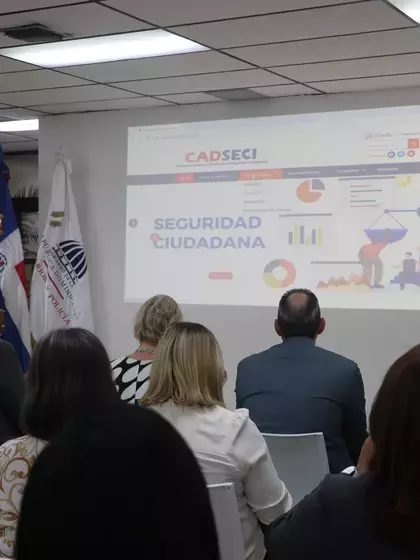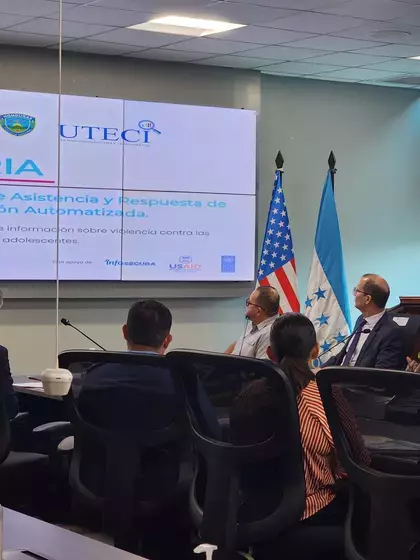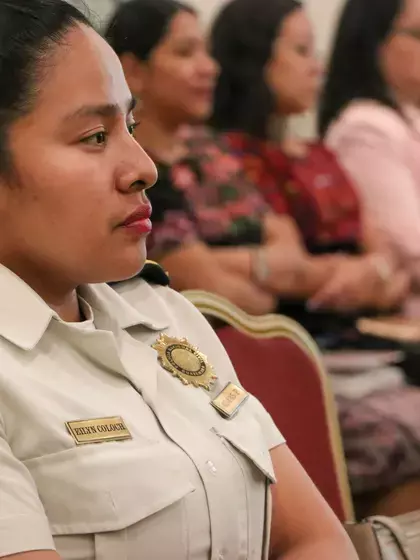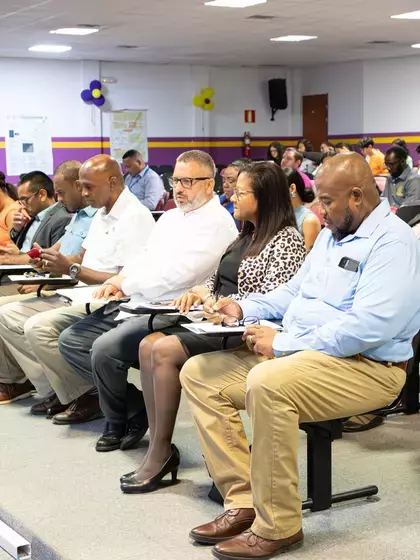The Dominican Republic, Honduras and Costa Rica exchange information to reinforce work against violence and crime
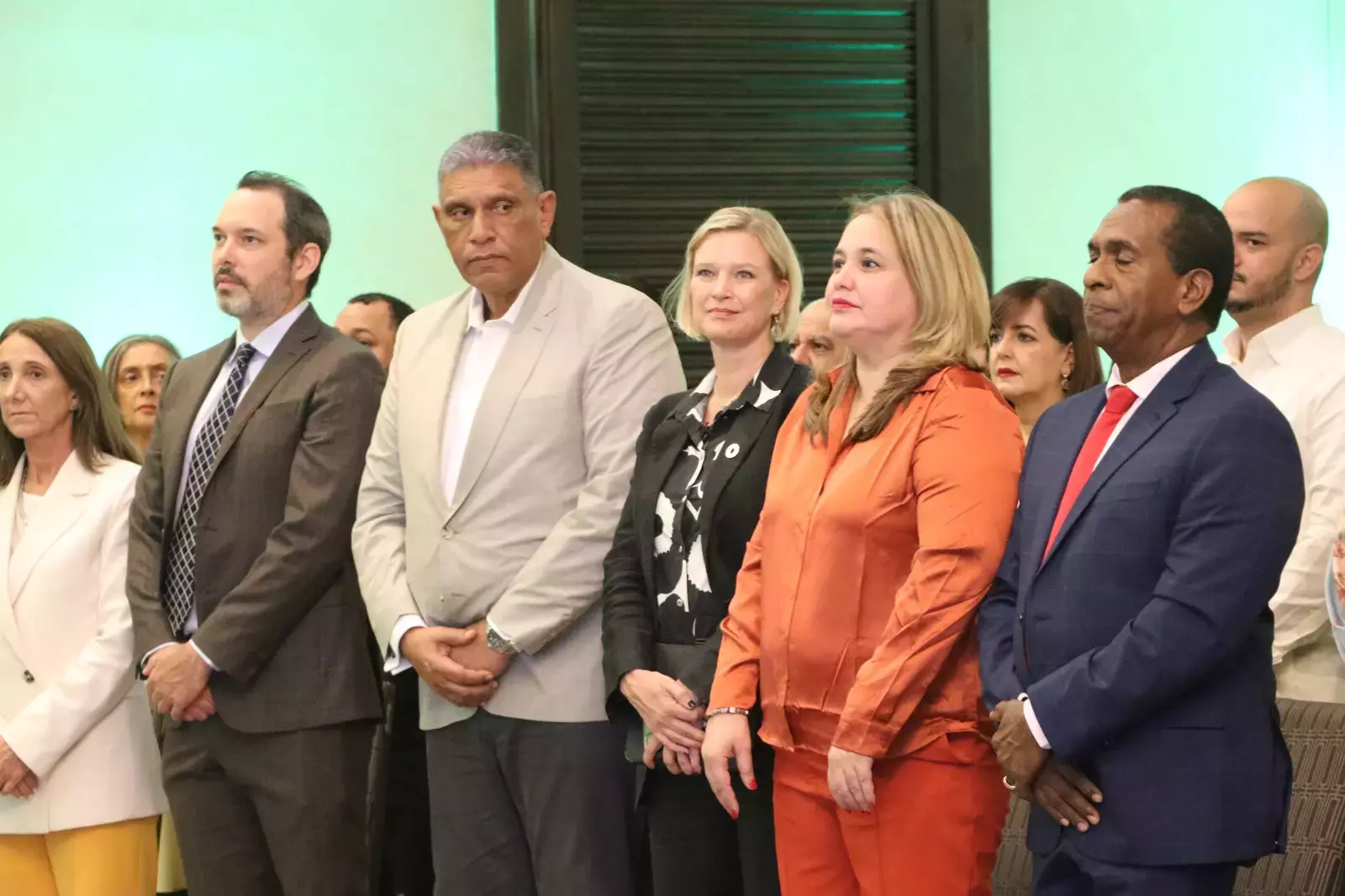
The Dominican Republic is reinforcing citizen security with strategic use of information to reduce violence and crime. The Ministry of the Interior and Police and the InfoSegura Regional Project of the United Nations Development Programme (UNDP) with the support of the United States Agency for International Development (USAID) held an interinstitutional training on "Enhancing Citizen Security through Smart Information."
In this scenario, Minister of the Interior and Police Jesus Vasquez Martinez announced that the use of smart phones and stepping up preventive patrols are some of the actions the National Police is taking to curtail these terrible problems. He noted that social transformations have changed the way we live and require modernization, and this is a context where technology fundamental, whereby he requested working together because the government prioritizes citizen security.
Moreover, UNDP Resident Representative Inka Mattila explained that "the InfoSegura Regional Project, a strategic regional partnership between the United Nations Development Programme (UNDP) and the United States Agency for International Development (USAID), we are accompanying the Ministry of the Interior and Police in coordinating the Comprehensive Citizen Security Strategy, contributing data and analysis to help take comprehensive action to promote peace and achieve concrete results for people's wellbeing."
She added that the purpose of the meeting is to expedite the inter-connection between institutions to respond to people, particularly the most vulnerable, and that data and analysis that provide accurate and up-to-date information makes it possible to create tools and processes to implement comprehensive evidence-based security policies.
For his part, Robert Clink of USAID Dominican Republic said that his country acknowledges that security is empowered by information and "is committed to working with our partners as they build a safer and more prosperous society."
Representing Honduras, Vice Minister for Security and Police Affairs Julissa Villanueva shared her country's achievements in terms of compilation, 61 municipal observatories and an open data portal for data collection that systematizes information provided by seven state institutions.
She stated that the objective is identifying the territories and classifying them by threat and vulnerability levels, targeting policies and making effective decisions to combat violence.
In this sense, Dominican Vice Minister for Security at the Ministry of Interior and Police Jesus Feliz said that they are working on data quality in order to be able to take decisive actions, and they need law enforcement engagement in the transformation the government has undertaken.
On behalf of the Costa Rican Interinstitutional Citizen Safety and Coexistence Statistics Commission, Oscar Delgado Cascanate weighed in on the advantages of coordination, arrangements and agreements to identify the origin of violence and vulnerability. He cited shortcomings, such as weak or non-existent data and non-approved records. He suggested building up technical units and observatories, and an analysis network for prevention.
Director of citizen security analysis Daniel Pou explained that while he has been at the head of this unit, "we've deployed data efforts across the country and we are committed."
Meeting participants included the MIP, UNDP, THE Citizen Security Data Analysis Centre (CADSECI), Office of the Public Defender of the Republic (PGR), National Police (PN), 911 Emergency Response and Security System, National Forensic Science Institute (INACIF), General Directorate of Traffic and Transport Safety (DIGESETT), National Statistics Office (ONE), Ministry of Women’s Affairs (MMujer), National Council for Children and Adolescents (CONANI), National Directorate for Drug Control (DNCD), Ministry of Education (MINERD), Institutional and Justice Foundation (FINJUS), Ministry of the President of the Dominican Republic, Government Communication and Information Technology Office (OGTIC), and the Ministry of Public Health.
The InfoSegura Regional Project is a strategic partnership of the United Nations Development Programme (UNDP) and the United States Agency for International Development (USAID) to work with national institutions on improving the information management and analysis cycle on issues of citizen security in Central America (Belize, Costa Rica, El Salvador, Guatemala, Honduras) and the Dominican Republic. Its purpose is to strengthen government capacities for evidence-based and people-centred policymaking on citizen security with a multidimensional gender-responsive and human rights-based approach.

